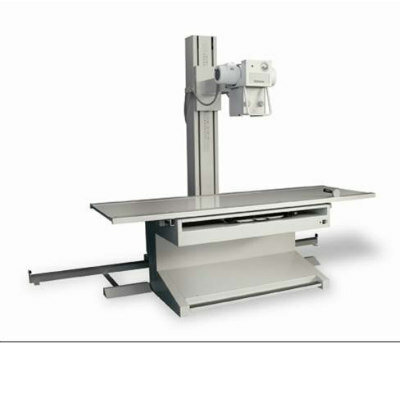Brain Imaging Shows Pediatric Posttraumatic Stress Symptoms Tied to Poor Hippocampus Function
By MedImaging International staff writers
Posted on 19 Jan 2010
Psychological trauma leaves a path of damage in a child's brain, according to a new study that provides the first direct evidence that children with symptoms of posttraumatic stress suffer poor function of the hippocampus, a brain structure that stores and retrieves memories. This research helps clarify why traumatized children behave as they do and could improve treatments for these children.Posted on 19 Jan 2010
The study was conducted by investigators from Stanford University School of Medicine (CA, USA) and Lucile Packard Children's Hospital (Palo Alto, CA, USA). "The brain doesn't divide between biology and psychology,” said Packard Children's child psychiatrist Victor Carrion, M.D., the lead author of the new research. "We can use the knowledge we get from understanding brain function to improve the psychology of the individual and vice versa.”
Extreme stressors such as experiencing abuse or witnessing violence can make children isolate themselves from family and friends, feel disconnected from reality, experience intrusive thoughts about the trauma, and have a hard time in school. "Post-traumatic stress is not only about the traumatic memories; it really affects daily living,” said Dr. Carrion, who is an associate professor of child and adolescent psychiatry at the School of Medicine and director of Stanford's early life stress research program. The research was published online December 8, 2009, in the Journal of Pediatric Psychology.
The findings could be an important step toward better monitoring of PTSD treatments, which include psychotherapy techniques such as teaching relaxation exercises, helping children to construct a cohesive story about the traumatic event, and helping them learn to cope with reminders of the trauma. Right now, psychologists assess such treatments by looking for improvements in symptoms, but that's a problem because the symptoms can fluctuate from day to day. "That method has the disadvantage that we don't know what's happening at the neural level,” Dr. Carrion stated.
To observe how children's brains work after trauma, Dr. Carrion's team used functional magnetic resonance imaging (fMRI) to compare 16 young people who had PTSD symptoms with a control group of 11 normal youths. The scientists scanned the brains of the 10- to 17-year-old study participants during a simple test of verbal memory. Subjects read a list of words, then saw a similar list with new words added, and were asked which terms were present on the original list.
The hippocampus worked equally well in stressed and control subjects when the word list was first introduced. However, children with PTSD symptoms made more errors on the recall part of the test and showed less hippocampus activity than control subjects doing the same task.
Subjects with the worst hippocampus function were also most likely to experience a specific set of PTSD symptoms: Such impairment of the hippocampus was strongly correlated with "avoidance and numbing” symptoms of PTSD, including difficulty remembering the trauma, feeling cut off from others, and lack of emotion.
Parents and other caregivers may find the new discoveries useful as they tend to traumatized children, according to Dr. Carrion, particularly when children respond to trauma by withdrawing from people who are trying to help. Parents may sometimes misinterpret this behavior as a child's attempt to retaliate, when it in fact represents an overload of the brain's normal mechanism for handling fear. "When parents understand that PTSD is real, they don't take it as personally,” he said. "They become more available to their kids. That's good because the kids need them.”
In the future, physicians and scientists may be able to use fMRI scans of the hippocampus to identify children who are at high risk of PTSD after mass catastrophes, added Dr. Carrion, who has consulted on response teams for natural disasters such as Hurricane Katrina and the February 2009 wildfires in southeastern Australia. However, larger studies of brain activity in pediatric PTSD are still needed to give a more detailed understanding of the disorder, he noted.
It is already clear that untreated PTSD can interfere with a child's normal brain development and increase the risk of other psychiatric conditions such as depression and substance abuse, Dr. Carrion concluded. "Early intervention is critical for children with post-traumatic stress,” he said.
Related Links:
Stanford University School of Medicine














